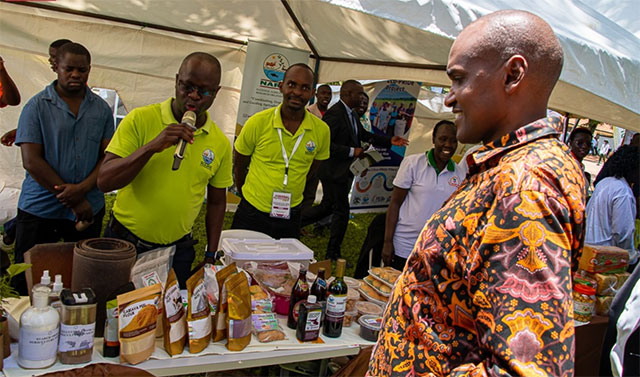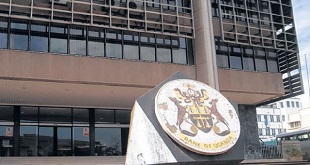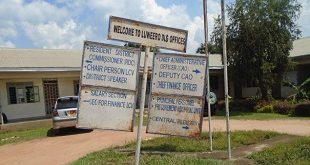
Namulonge, Uganda | THE INDEPENDENT & URN | The inaugural NARO–EAGC Agribusiness Expo and Trade Symposium has ended at Namulonge on Saturday, with a call for similar events to be held nation-wide.
“I have also urged National Agricultural Research Organisation (NARO) and its partners, including Green Card and other organizations, to ensure that each of NARO’s sixteen institutes, which are located across the country, hosts annual agricultural expos,” said Frank Tumwebaze, Minister for Agriculture, Animal Industry and Fisheries.
He explained that expos provide a vital platform where farmers can directly interact with innovators and witness demonstrations of new technologies. This allows farmers to assess the cost-effectiveness and appropriateness of different technologies for their specific needs, recognizing that the technology suitable for a small-scale farmer may differ from that required by medium or large-scale operations.
“These expos serve as invaluable learning opportunities for farmers and also provide innovators and manufacturers with a crucial avenue to market their products. We expect a report on the outcomes of these expos to gauge their impact and effectiveness,” Tumwebaze said. The National Crops Resources Research Institute (NaCRRI) jointly organised the expo with Eastern Africa Grain Council (EAGC).
Tumwebaze promised to help recruit more researchers, particularly in the diverse disciplines that agricultural research demands.
“We will continue our efforts to address this and increase the number of skilled personnel within these institutions. Notably, the government has recently provided funding to the National Agricultural Research Organisation (NARO) for the production of the anti-tick vaccine, among other important initiatives.”
The Minister was responding to requests from NARO for staffing levels to be raised.
Kasim Sadik, the Deputy Director General of NARO, expressed concern over the lack of experts in various agricultural disciplines, particularly those needed to address climate change.
Sadik cited an example of the inadequate number of entomologists, agronomists, pathologists, among others, who are critically needed in the wake of climate change and population growth. He called for the filling of the entire staffing structure.
“Our approved ceiling is 1180 positions, but currently, we have approximately 760 personnel. This leaves a significant gap of about 400 positions, which is impacting critical disciplines. For example, the number of entomologists, highly specialized agronomists, and pathologists within our organization is severely limited,” remarked NARO’s Dr. Sadik Kassim.
He explained why production at the farm level remains lower than its potential across the country.
“One key reason is the insufficient budget allocated for the rapid multiplication of early-generation seeds and the effective dissemination of these varieties through the extension services of the Ministry. Furthermore, while NARO has institutes across the country that are meant to forge strong linkages with extension services at various levels, the operational budgets for these institutes are severely constrained,” Dr Kassim stated.

Grain Trade Business Hubs
Earlier, Gerlad Masila, the Executive Director Eastern Africa Grain Council (EAGC) outlined how they have established Grain Trade Business Hubs, or G-Hubs, as farmer-owned and operated entities.
These hubs are designed as comprehensive centers to address the multifaceted challenges faced by smallholder farmers and to stimulate regional grain trade. The fundamental principle behind G-Hubs, Masila explained, is to empower farmers through collective action, providing them with essential resources and improved access to markets.
“One of the primary functions of G-Hubs is to facilitate collective action. By bringing together multiple farmer cooperatives, these hubs enable the pooling of resources and a significant increase in the farmers’ bargaining power within the agricultural value chain. This collective strength allows them to operate more effectively in various aspects of their business.
Crucial benefits offered by G-Hubs will include improved input access, post-harvest management, enhancde market access via a GSOKO platform, technical support and improve farmers’ access to financial services. The GSOKO platform provides the crucial link to the market.
The Eastern Africa Grain Council (EAGC) plays a pivotal role in supporting the development and operation of these G-Hubs. This support encompasses several key areas like capacity building, market intelligence , policy advocacy . It fosters strategic partnerships with other organizations, such as TradeMark Africa, to further strengthen the G-Hubs and enhance the overall efficiency and effectiveness of the grain value chain in the region.
 The Independent Uganda: You get the Truth we Pay the Price
The Independent Uganda: You get the Truth we Pay the Price



